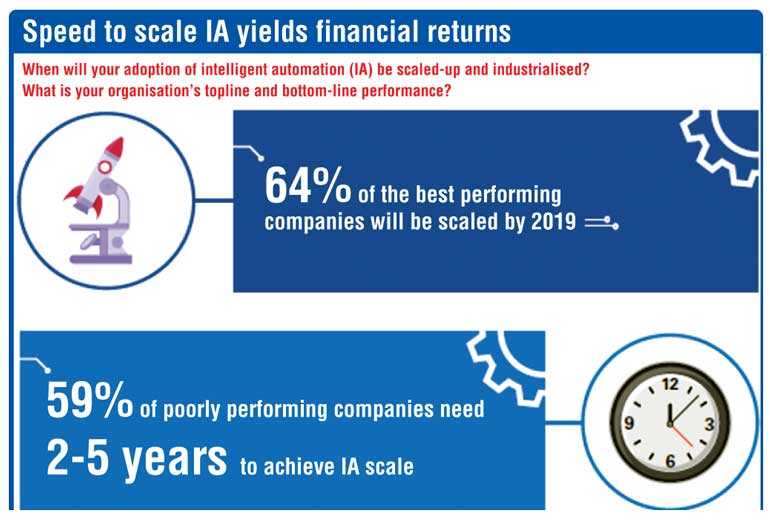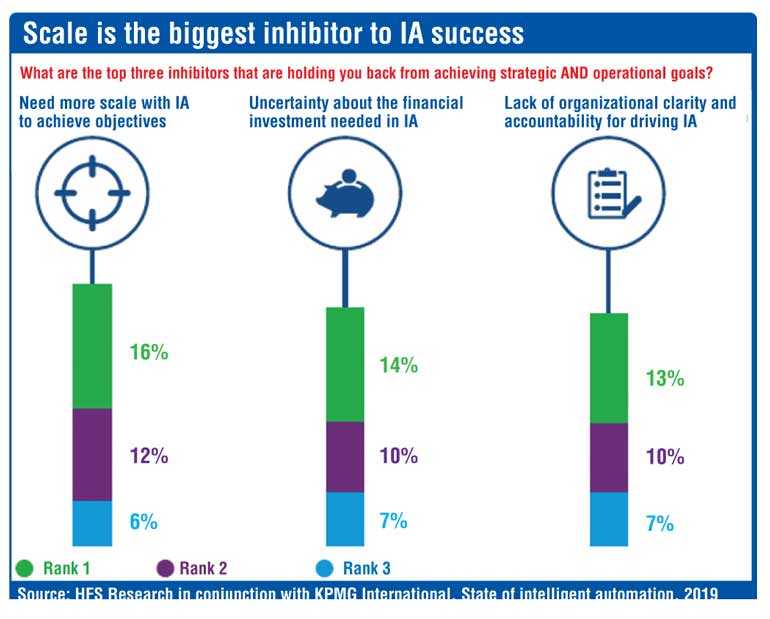Tuesday Feb 17, 2026
Tuesday Feb 17, 2026
Tuesday, 2 April 2019 00:00 - - {{hitsCtrl.values.hits}}

According to KPMG International’s new ‘Easing the pressure points: The State of Intelligent Automation’ global survey, enterprises are not scaling intelligent automation (IA) technologies (artificial intelligence [AI], advanced analytics, and robotic process automation [RPA]) fast enough to meet desired objectives and returns. However, those organisations that are scaling IA technologies are seeing strong financial performance.
“Investment in and adoption of IA technologies are occurring at a rapid pace, but many organisations are struggling to demonstrate significant impact,” said KPMG Principal and Intelligent Automation Head Cliff Justice.
“Without a holistic digital transformation strategy that underpins IA investments across an entire organisation, these projects are stunted in pilot mode and fail to deliver the intended results. Yet, when implemented with a clear vision and integrated approach, IA is propelling businesses, not only with a competitive business edge but financial success.”
Key findings of the State of Intelligent Automation survey are as follows.

Other notable challenges pinpointed include uncertainty about the financial investment needed; lack of clarity on accountability for driving the agenda; and concerns about changes in governance and risk management Business executives are optimistic about the impact IA will have on jobs – approximately one-half of respondents surveyed say automation will impact fewer than 20% of their staff. KPMG feels these executives are overly optimistic
“To realise the full potential of IA beyond cost savings, organisations must think beyond technological investments and incorporate change management at every step of the way,” Justice continues. “Even the most basic of robotic process automation technologies will impact the future of work. Broad-ranging transformation strategies are critical to future-proofing companies’ most valuable resource: their workforce.”
KPMG Global Lighthouse Head and KPMG Germany Partner Thomas Erwin concluded: “To ensure an effective, comprehensive IA strategy that integrates complex technologies such as AI, three key components are essential: clear business objectives, an adequate budget and an orchestrated approach.
These are fundamental to successfully scaling up IA across the enterprise.”